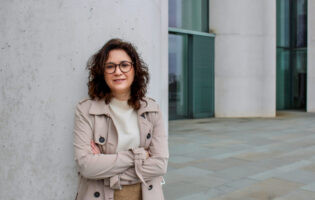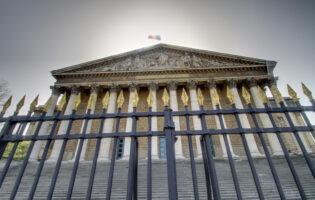Turkey After the Elections – Where is it Heading?

Rana Deep Islam
EY
Dr. Rana Deep Islam works as a Business Development Executive in the Government and Public Sector for Germany, Switzerland, and Austria at EY, one of the largest professional services firms. Prior to joining EY he worked as a campaign manager for the SPD’s chancellor candidate Martin Schulz during his campaign in the run-up to the German federal elections in 2017. Prior to that, he was in charge of the management of the European project portfolio at Stiftung Mercator and gained further professional experience at the European Parliament, the School of Advanced International Studies (SAIS), and the Gesellschaft für Internationale Zusammenarbeit (GIZ). Rana holds an MA from the College of Europe in Bruges and a PhD from the University of Erlangen-Nurnberg. In his PhD studies, Rana compared the Middle East politics of the EU and Turkey. He was a DAAD/AICGS Research Fellow in May and June 2011. Rana publishes frequently in academic journals and media on European affairs and German politics.
Recep Tayyip Erdogan finally made it a third time. With an outcome of 49.8 percent, the Prime Minister’s Justice and Development Party (AKP) won the absolute majority of votes in last Sunday’s national elections. Interestingly German media reacted very cautiously in commenting on the result. The prevailing opinion delivered by most of Germany’s newspapers labeled the result as a major setback for Erdogan as the AKP missed its goal of reaching a two-thirds majority. Only such an outcome would have allowed the Turkish government to unilaterally change the constitution into a presidential, France-like system, as was announced by Erdogan at his rally. It is true that the AKP now needs to seek national consent, especially when it comes to approaching the parliamentary opposition. Implementing a constitutional reform is only possible if the AKP aligns with either the social democratic CHP or the nationalistic MHP, the two other parties represented in the Grand National Assembly. However, looking at the numbers will quickly make it clear that the AKP is far from legitimately being considered the election’s loser. For the first time in Turkey’s republican history a party was re-elected three times in a row while being able to increase its share of the votes each time. At the end of the next legislative period, Erdogan will look back on a twelve-year term in power. In this time his government changed the face of the country in an unprecedented manner. The AKP passed major democratic reforms which had been unthinkable under the reign of the secular elites running the country for most decades during the Cold War period. Turkey can furthermore call itself the second-biggest growing market economy, topped only by China. GDP growth rates of 9 to 10 percent are way beyond the reach of most of the European states. It comes as no surprise that decision-makers in Ankara see their country playing in one league with the BRIC states. In a slightly exaggerated response but with a certain seed of truth, the respect and admiration from some observers put Erdogan on the same level with the country’s republican founding father Mustafa Kemal Atatürk.
The rise of Turkey should not obscure the country’s shortcomings, which are pointed out by human rights groups and civil society organizations alike. In the freedom of press index regularly published by Reporters Without Borders, the country is listed as number 138 from a list of 178 countries. Under the cloak of the so-called Ergenekon scandal, an alleged conspiracy planed by high-ranking army generals to get rid of the government, AKP leaders have taken a harsh stance against journalists and editors. Against this backdrop the cover-up of Ergenekon serves as the government’s pretext to settle old scores with uncomfortable representatives of society. As a matter of fact, the European Union took the national vote as an opportunity not only to congratulate Erdogan for his victory but also to call on him to improve the country’s human rights performance. At this point one comes to the crucial question: What do last Sunday’s elections say about Turkey’s foreign policy?
As a matter of fact, foreign observers legitimately do not pay much attention to the debate over whether Turkey will be governed by a parliamentary or presidential system in future. Speaking with overtones from Henry Kissinger, the international community just wants to know which number to call when it comes to Turkey’s foreign affairs. In any case this will remain Recep Tayyip Erdogan and Ahmet Davutoglu, the current secretary of state. Much more important from an external perspective is Ankara’s relationship with Brussels and the EU’s capitals on the one hand and with the countries of the Middle East region on the other. One could assume that according to the logic of “never change a winning strategy” Turkey would not have a distinguished interest in pursuing a fundamental change of its foreign policy guidelines. And indeed, the country has been able to constantly expand its regional leadership role in the past couple of years. A slight process of alienation from the West was mirrored by a growing sentiment for Middle Eastern affairs. Such a policy hits fertile ground; a huge majority of citizens in the Arab world welcomes a stronger role being played by Turkey in regional politics. The problem is, however, that Turkey’s decision-makers did not foresee the possibility of change when they developed their foreign policy strategy. Two scenarios seem to be likely when qualifying Ankara’s international relations in the next four years:
All quiet on the Western front: The current deadlock surrounding the Turkey-EU accession talks will go on. Both sides shame and blame each other for the stalemate of the integration process. On the European side it is France and Germany who will maintain their policy of delay. Neither Berlin nor Paris – nor even the respective opposition forces in the two countries – seems to be determined for reinvigorating the membership talks. This is also true for the Turkish Republic. Ankara surely does not want to break up the negotiations entirely. The interconnection with the European side is too important, especially when promoting itself as a gateway to Europe and the West toward the Middle East. On the other hand it is highly unlikely that Ankara will show any initiative to resolve the paralyzed accession process proactively. In such a case Ankara would be forced to deal with the hot topic of the Cyprus question and the related opening of Turkish ports for vessels shipping under a Cypriot flag. Treating the issue would require the AKP government to challenge the own military, which still considers Cyprus to be a core matter of national security. With regard to the domestic climate – which seems to be poisoned anyway – the AKP does not want to take the risk of escalating the smoldering conflict between secular forces (the military and the judiciary) and AKP followers.
Getting adapted to change: Against the backdrop of the Arab Spring uprisings, the entire Middle East region is in turmoil. In his keynote speech on the Middle East, U.S. President Barack Obama rightly pointed out that it will take years if not decades before the reform process will come to an end, which would allow the international community to do a final evaluation and formulate an all-set policy toward the region. Accordingly, the potential for unrest will remain in the foreseeable future. Therefore Turkey might resort to old allies, which would guarantee at least a minimum level of stability. As paradoxical as it might sound, this means a Turkish-Israeli rapprochement. Both countries have no interest in letting the region sink in chaos and violence. As a matter of fact Turkey and Israel are well advised to cooperate in order to share the burden of coping with the challenges of a renewed regional order in the Middle East. Obviously Ankara and Tel Aviv frequently clashed in the past, for example with regard to the Gaza War or the so-called flotilla incident. Prime Minister Erdogan in particular used Israeli politics for his own populist outreach to the Israel-averse constituency of the Turkish population. However now, just having been re-elected for another term, Erdogan has the chance to realign with a former partner who can be of help when it comes to facing Middle Eastern change. It will be seen in the near future if Turkey is willing to take such an opportunity. For in September this year, the Palestinians announced their intention to establish an independent state by handing in their diplomatic credentials at the United Nations General Assembly. It is to be seen how Ankara will behave when those chips are coming down. Ideally Turkey will do what it did many times in the past: Act as an honest broker. This, however, requires a working relationship with Israel.
Rana Deep Islam is currently a DAAD/AGI Fellow and a Ph.D. student at Erlangen University in the Department of International Relations.
This essay appeared in the June 17, 2011, AGI Advisor.









